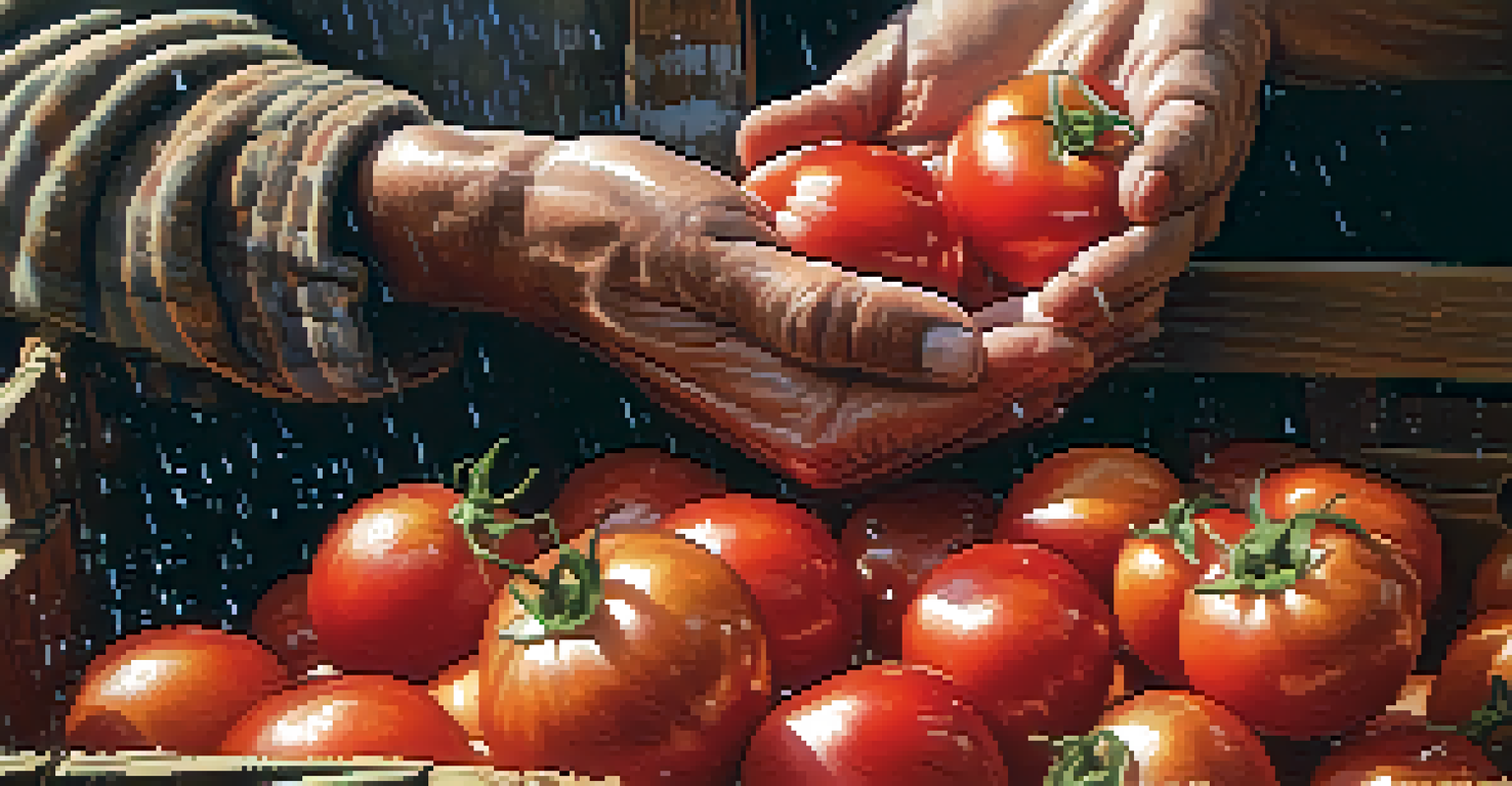The History of Sacramento: A Hub for Agricultural Development

The Early Beginnings of Sacramento's Agriculture
Sacramento's agricultural roots date back to the mid-19th century when gold miners needed food supplies. The area's fertile soil and favorable climate made it an ideal location for farming. Settlers quickly recognized the potential and began cultivating crops like wheat and corn, laying the groundwork for a thriving agricultural community.
Agriculture is the foundation of civilization and any stable economy.
As the city grew, so did the demand for fresh produce. Farmers from the surrounding regions flocked to Sacramento, drawn by its promise of a profitable market. This influx of agricultural activity not only supported the local economy but also attracted more residents, creating a vibrant community centered around farming.
By the late 1800s, Sacramento became known as the 'City of Trees' due to its expansive orchards and gardens. The combination of rich soil and innovative farming techniques allowed farmers to experiment with various crops, resulting in a diverse agricultural landscape that would continue to evolve over the years.
The Impact of the Transcontinental Railroad
The completion of the Transcontinental Railroad in 1869 marked a turning point for Sacramento's agricultural industry. This monumental project connected the eastern and western United States, facilitating faster transportation of goods. Sacramento farmers suddenly had access to larger markets, allowing them to expand their operations and reach new customers.

With the railroad, perishable goods could be shipped quickly, preserving freshness and quality. This opened doors for Sacramento's produce to be sold in cities far beyond California, significantly boosting the local economy. Farmers could now grow more, knowing they had reliable transportation to deliver their crops.
Sacramento's Agricultural Heritage
Sacramento's agricultural roots began in the mid-19th century, driven by gold miners' need for food and the region's fertile land.
Additionally, the railroad spurred the growth of related industries, such as canning and processing. Sacramento became a hub for agricultural innovation, with businesses emerging to support farmers in bringing their products to market efficiently.
The Rise of Specialized Crops
As Sacramento's agricultural scene matured, farmers began to specialize in certain crops, leading to the emergence of unique agricultural products. For example, the region became famous for its rice production, thanks to its ideal growing conditions and water supply from the Sacramento River. This specialization not only enhanced local cuisine but also contributed to California's reputation as a key player in the national agricultural market.
The future of food is not just about producing more; it's about producing better.
Similarly, Sacramento's climate proved perfect for growing a variety of fruits and vegetables, including tomatoes, almonds, and grapes. Farmers adapted their practices to cultivate these crops, using advanced techniques and irrigation methods to maximize yield. It wasn't long before Sacramento earned recognition for its high-quality produce, attracting buyers from all over the country.
This focus on specialized agriculture also encouraged community initiatives, such as farmer's markets and co-ops. These outlets allowed local growers to connect directly with consumers, fostering a sense of community and appreciation for locally sourced food.
Challenges and Resilience in Agriculture
Like any region, Sacramento's agricultural industry has faced its share of challenges over the years. Droughts, floods, and economic downturns have tested the resilience of local farmers. However, their ability to adapt and innovate has been key to overcoming these obstacles, demonstrating the strength of the agricultural community.
For instance, during periods of drought, farmers have implemented water-saving techniques, such as drip irrigation and crop rotation, to maintain productivity. These sustainable practices not only help conserve water but also enhance soil health, ensuring the land remains viable for future generations.
Innovation Through Technology
Modern farmers in Sacramento are leveraging technology like drones and data analytics to enhance efficiency and productivity in agriculture.
Moreover, Sacramento has seen a rise in organic farming in response to consumer demand for healthier, environmentally-friendly options. This shift not only benefits the local economy but also contributes to a growing national trend towards sustainable agriculture.
The Role of Technology in Modern Agriculture
In recent years, technology has played a pivotal role in transforming Sacramento's agricultural practices. Farmers are now leveraging advancements in precision agriculture, such as drones and soil sensors, to monitor crop health and optimize resource use. This technological integration enhances efficiency and productivity, allowing farmers to produce more with less.
Additionally, data analytics has become an essential tool for farmers, enabling them to make informed decisions about planting, irrigation, and harvesting. By analyzing weather patterns and soil conditions, growers can forecast yields and adjust their strategies accordingly. This data-driven approach is revolutionizing the way agriculture is practiced in Sacramento.
Furthermore, local universities and research institutions are collaborating with farmers to develop innovative solutions tailored to the region's unique challenges. This partnership fosters a culture of continuous improvement and encourages the adoption of best practices, ultimately benefiting the entire agricultural community.
Sacramento's Contribution to the Farm-to-Fork Movement
Sacramento has emerged as a leader in the farm-to-fork movement, emphasizing the importance of local food sourcing and sustainability. This initiative encourages residents to support local farmers and eat seasonally, fostering a strong connection between consumers and their food sources. The city’s vibrant culinary scene reflects this philosophy, showcasing dishes made with fresh, locally-sourced ingredients.
The annual Sacramento Farm-to-Fork Festival celebrates this movement, bringing together farmers, chefs, and food enthusiasts to promote local produce. This event not only highlights the quality of Sacramento's agricultural offerings but also educates the community about the benefits of eating locally. It's a gathering where people can enjoy delicious food while learning about sustainable practices.
Championing Farm-to-Fork Movement
Sacramento's commitment to the farm-to-fork movement emphasizes local food sourcing and sustainability, connecting consumers with regional farmers.
Moreover, the farm-to-fork movement has prompted local restaurants and grocery stores to prioritize partnerships with regional farmers. This collaboration not only boosts the local economy but also supports the agricultural landscape that has been cultivated over generations.
Looking Forward: The Future of Sacramento Agriculture
As we look to the future, Sacramento's agricultural industry appears poised for growth and innovation. With a strong emphasis on sustainability and technology, local farmers are adopting practices that not only enhance productivity but also protect the environment. This forward-thinking approach ensures that Sacramento will continue to thrive as an agricultural hub.
Emerging trends, such as urban agriculture and vertical farming, are also gaining traction in Sacramento. These innovative practices allow for food production in urban settings, making use of limited space while providing fresh produce to local communities. Such initiatives align with the city's commitment to sustainability and food security.

Ultimately, Sacramento's rich agricultural history and commitment to innovation provide a solid foundation for a bright future. By continuing to embrace technology and sustainable practices, the city can ensure that its agricultural landscape remains vibrant and resilient for generations to come.